If you're pursuing new weight loss goals or trying to maintain your current weight, it's important not to forget about caring for your metabolism. This process is vital for numerous bodily functions, which include converting food into energy and burning calories. If we have a fast metabolism, our bodies are burning calories even while we sleep! But if our metabolism is slowed down, we are burning less energy and fewer calories.
We may have a slow metabolism without even realizing it. Some common symptoms of a slower metabolism include things like hair loss, dry skin, fatigue, and weight gain or trouble losing weight. Although it can be frustrating to live with a slower metabolism, there are certain eating habits we can change to help us speed up our metabolic rate.
We talked with Amy Goodson, MS, RD, CSSD, LD author of The Sports Nutrition Playbook, and a member of our medical expert board, as well as Lauren Harris-Pincus, MS, RDN, founder of NutritionStarringYOU.com and author of The Everything Easy Pre-Diabetes Cookbook, to get the scoop on the worst eating habits for your metabolism. Read on for their tips, and for more advice on healthy eating, sign up for our newsletter!
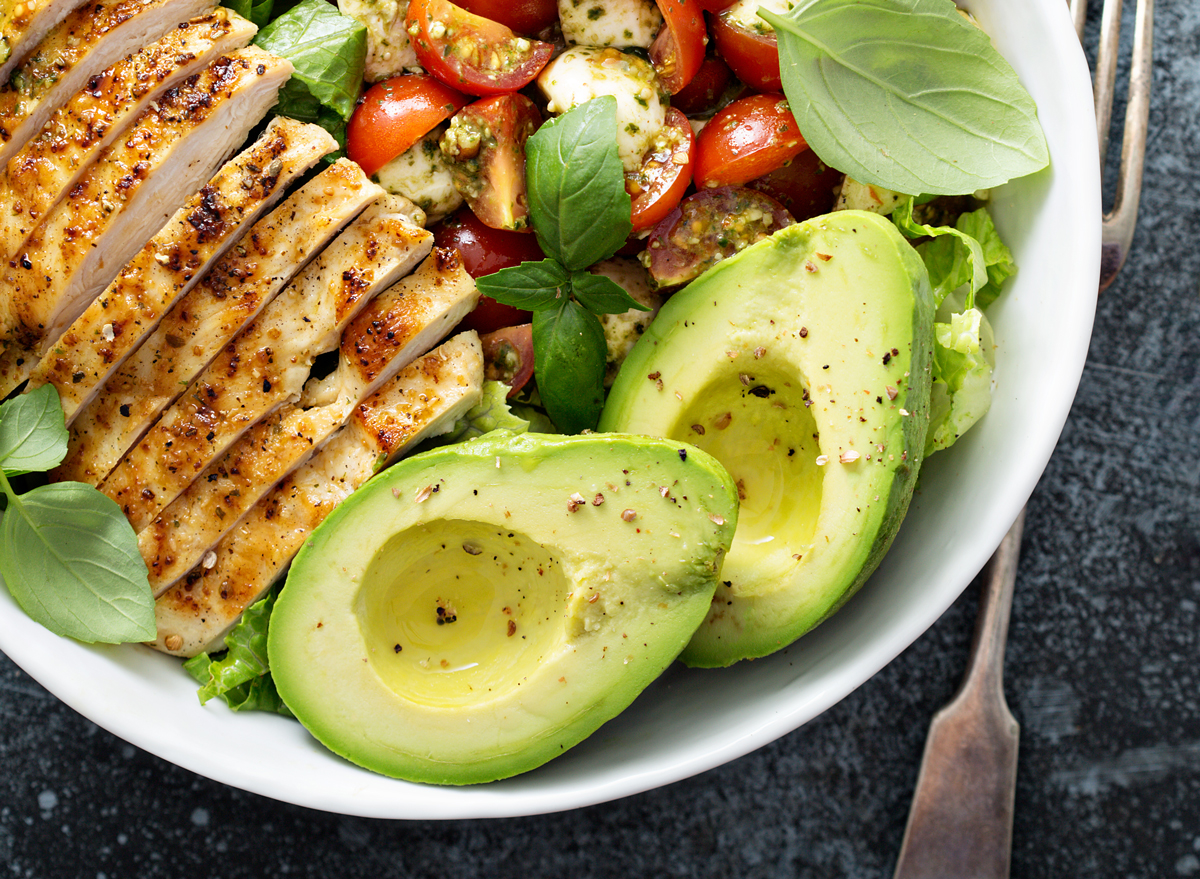
Getting enough protein is an important part of boosting our metabolic health. According to Nutrition & Metabolism, consuming a high-protein diet is directly correlated to better overall metabolism.
Pincus adds that it's not only how much protein we eat, but when we eat it that matters. "Most of us consume enough total protein but we don't properly divide it between our meals and snacks to maximize our muscle growth and repair," says Pincus.
She recommends setting a specific goal of protein for every meal to make sure we get enough throughout the day. "You'll want to go for a minimum of about 20 to 25 grams of protein (3 to 4 ounces) per meal, especially during breakfast," says Pincus.
RELATED: Ways Eating Protein Can Help You Lose Weight, Say Dietitians
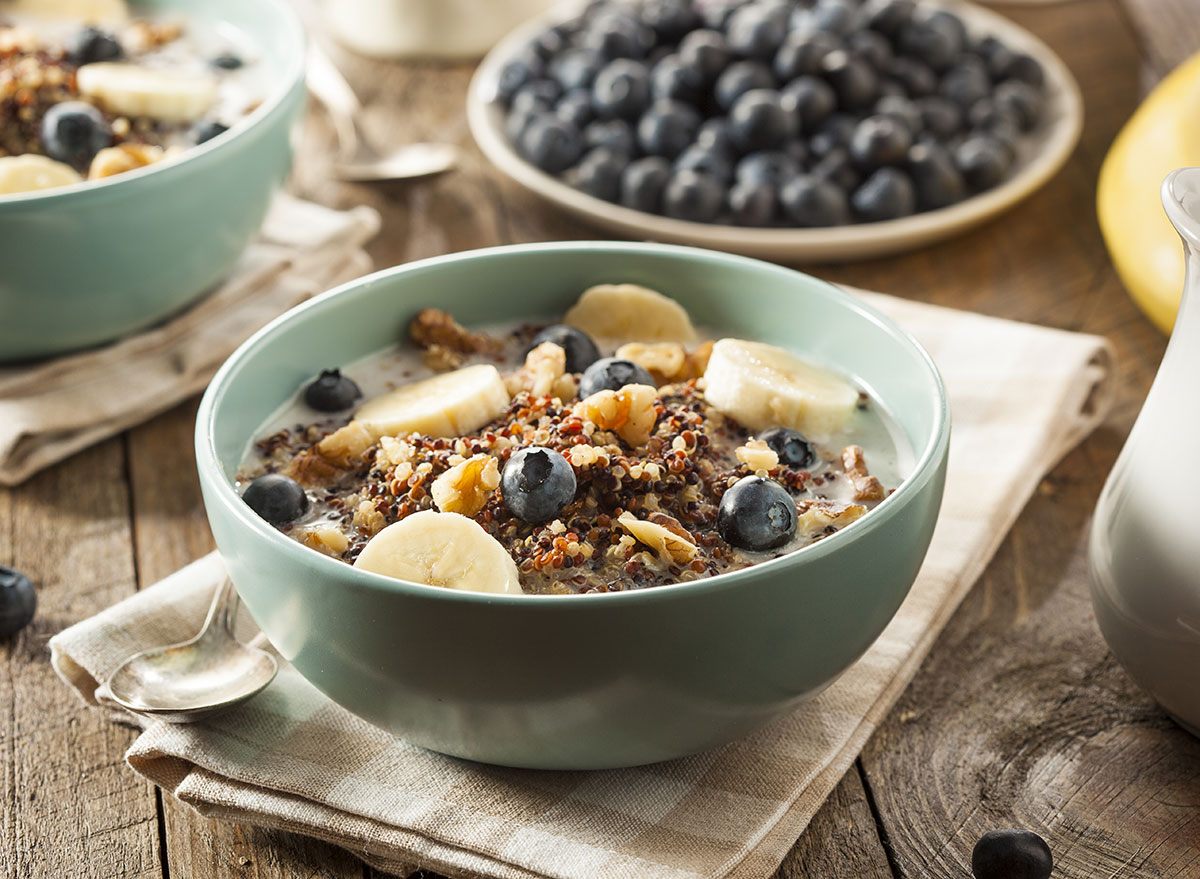
It can be tempting to wake up in the morning and skip breakfast. Maybe you are super busy and forget to have food with your coffee, or perhaps you are trying to cut calories so you decide to avoid the first meal of the day. Whatever the reason is for skipping, you may want to reconsider!
"Think of your metabolism like a fire; in order for it to burn, you have to light it," says Goodson, "and breakfast does just that."
If you're someone who struggles to "start this fire" in the morning, try changing up your breakfast routine so you can fit in a balanced meal.
"The goal is to start your fire, or metabolism, with a nutrient-rich breakfast of fiber, protein, and healthy fat," says Goodson. "That could include things like eggs with veggies, oatmeal with peanut butter, Greek yogurt with berries, or a breakfast wrap on a whole-grain tortilla with egg, cheese, lean protein (veggies are a plus) and a side of fruit."
Here's One Major Side Effect of Skipping Breakfast, New Study Says.

This tip is similar to our previous one about not skipping breakfast, but it's also important for us to take a look at our other meals throughout the day.
"Our bodies like to eat during daylight hours when we are more active and need proper fueling," says Pincus. We don't eat food while we sleep, because our bodies don't need to, but what we eat during the day affects our evening hours, which in turn affects our metabolism!
"As the sun sets, our digestive system slows down to prepare for sleep, so people who skip breakfast, eat little during the day, and consume a large portion of their daily calories in the evening are working against natural biorhythms," says Pincus.
In order to balance our metabolism based on our natural circadian rhythm, Pincus suggests eating a nourishing breakfast, a larger and hearty lunch, and a smaller dinner portion.
RELATED: Secret Side Effects of Eating Before Bed, Says Science
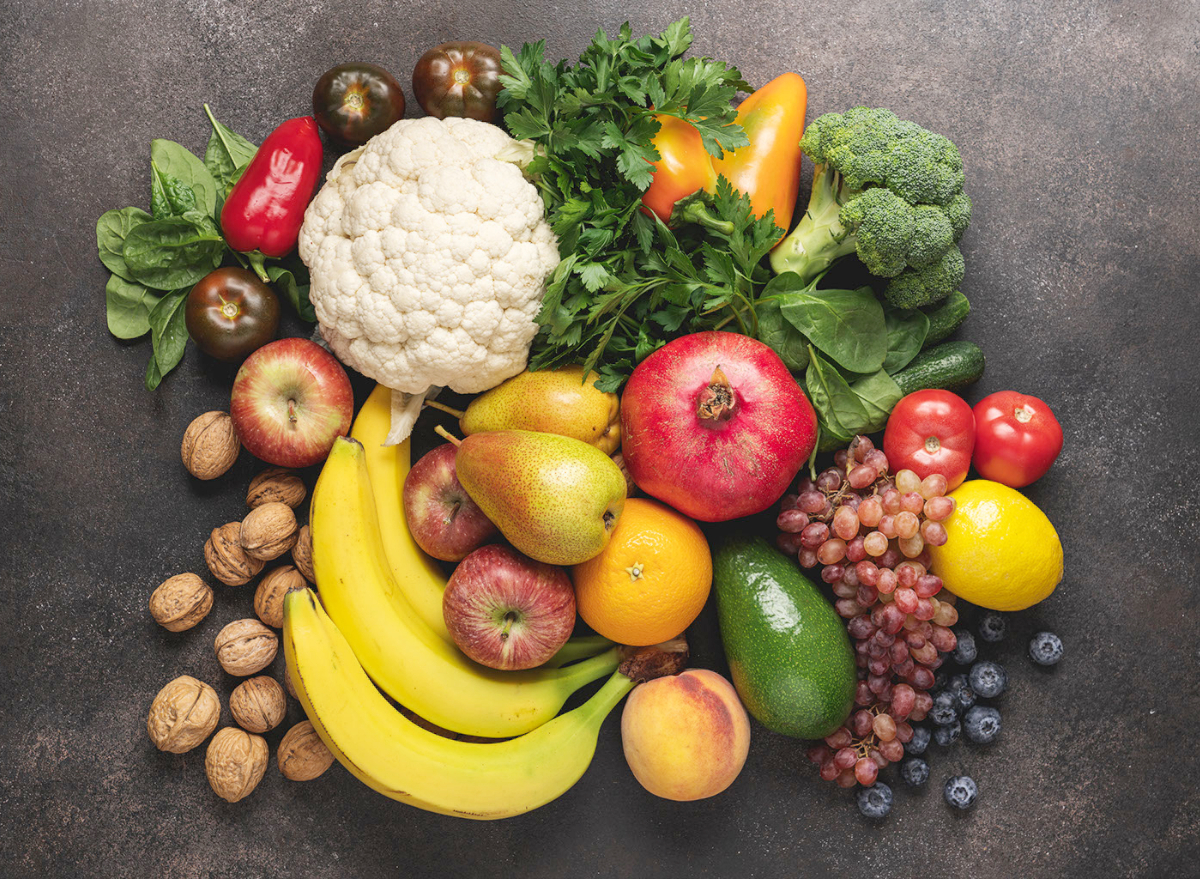
Fiber is a crucial component in caring for our metabolic health. According to Nutrients, fiber not only helps us maintain a healthy metabolism, but it also helps us fight things like type 2 diabetes, cardiovascular disease, and even cancer.
Fiber can help our metabolism in two main ways: the digestion process, and by keeping us full.
"Fiber can increase metabolism by requiring more energy to process," says Pincus, "and fruits, veggies, nuts, beans, seeds, and whole grains that contain fiber help to keep us full and well-nourished throughout the day."
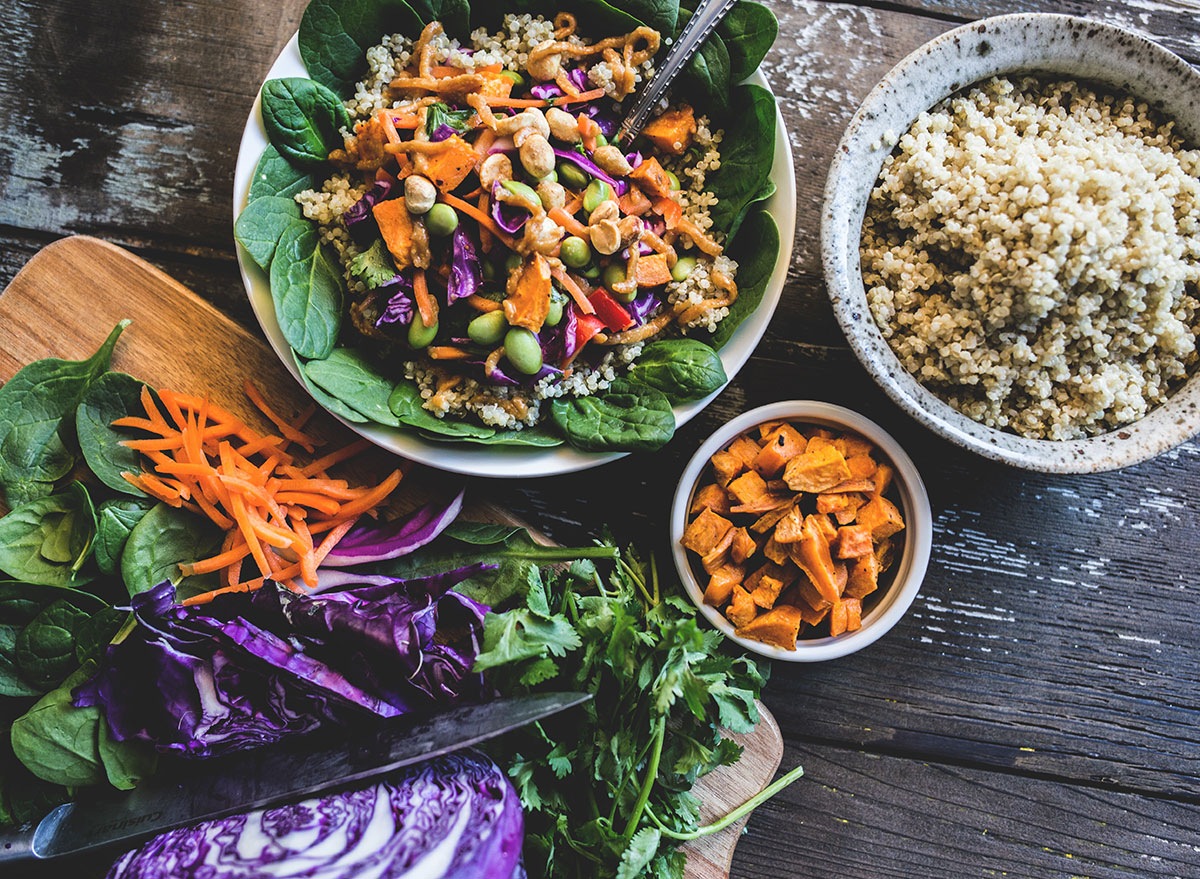
Cutting calories can sometimes be an effective way to reach our weight loss goals, but if we don't consume enough calories throughout the day, it will actually slow down our metabolism!
"You have to eat calories to burn calories," says Goodson, "and while a caloric deficit is needed for weight loss, consuming too few calories can make your body think food is scarce and slow down its metabolism to compensate."
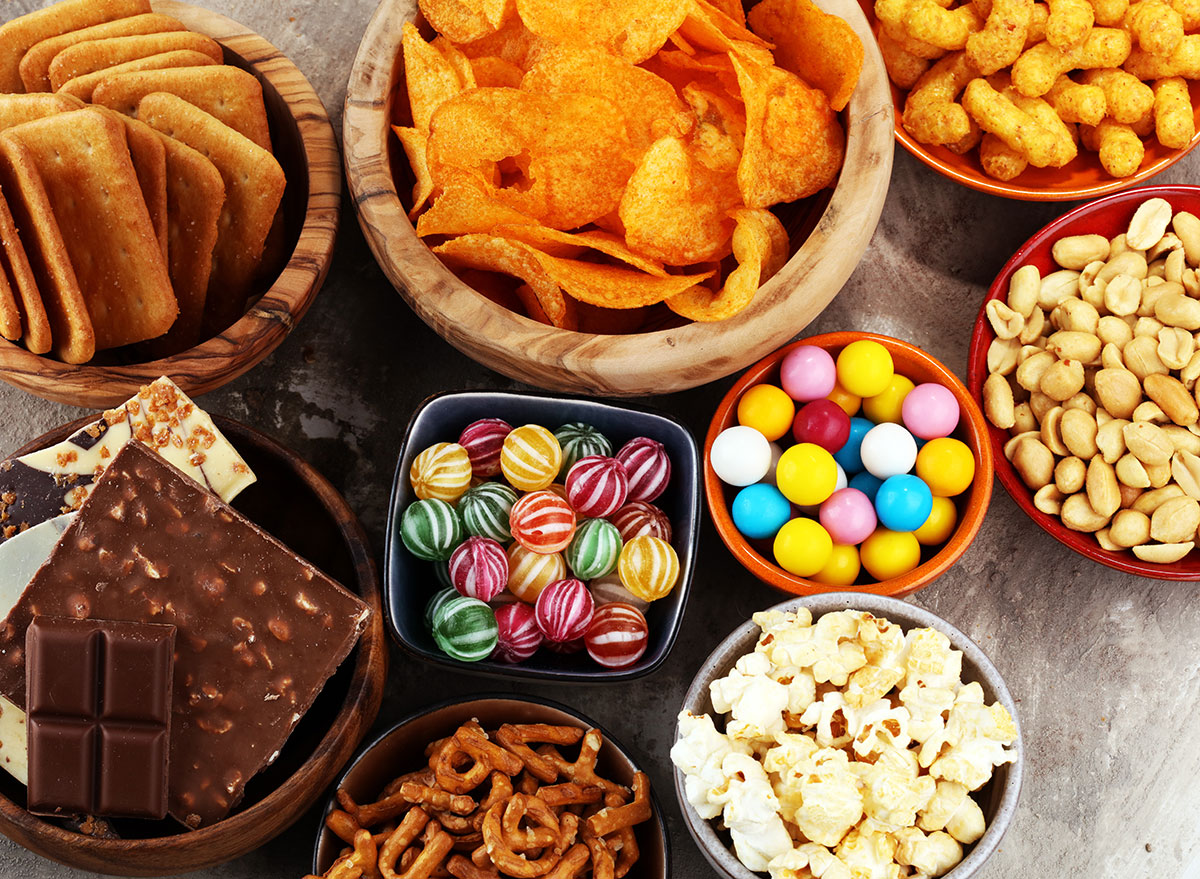
Your metabolism is affected by the amount of food we eat and when we eat it, but it's also impacted by the type of food we eat. Many experts recommend limiting our processed food intake for this reason.
"Highly processed packaged foods are typically digested quickly and lack fiber, which means they don't require a lot of energy for processing," says Pincus.
But sometimes we are in a bind, and we need to grab a quick snack. If you need to go for the packaged food, Pincus suggests looking for "something with fiber-rich ingredients like whole grains, nuts, seeds, beans, fruits, and veggies when possible."
For more healthy metabolism tips, read these next:
"eat" - Google News
September 01, 2021 at 06:47PM
https://ift.tt/2YbWB93
The Worst Eating Habits For Your Metabolism, Say Experts | Eat This Not That - Eat This, Not That
"eat" - Google News
https://ift.tt/33WjFpI
https://ift.tt/2VWmZ3q
Bagikan Berita Ini














0 Response to "The Worst Eating Habits For Your Metabolism, Say Experts | Eat This Not That - Eat This, Not That"
Post a Comment